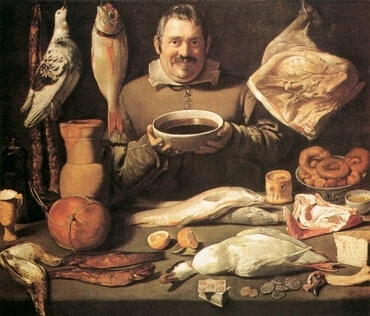3081. 'A virgin, and no man had known her' means pure from everything false. This is clear from the meaning of 'a virgin'. The word 'virgin' occurs in various places in the Word, where it means the Lord's kingdom, and also the Church, and therefore means every person who is the Lord's kingdom or who is the Church; and it receives this meaning from conjugial love which exists in chaste virgins. Conjugial love in the spiritual sense is the affection for good present in truth, and the affection for truth grounded in good, from which affections, when joined so to speak in marriage, conjugial love flows, see 2508, 2618, 2727-2729. And because conjugial love, as has been stated, is seen in a virgin, the Lord's kingdom, which is also compared to and actually called a marriage, is called a virgin. The reason 'no man had known her' means pure from everything false is that 'a man' (vir) in the Word means not only rational truth but also in the contrary sense falsity, see 265, 749, 1007, so that 'known by a man' means defiled by falsity, and 'not known by a man' pure from falsity. The word 'man' (vir) is not used here in the sense of a husband.
[2] 'A virgin' in the Word means those who are in the Lord's kingdom, or what amounts to the same, who have the Lord's kingdom within them. This is clear in John,
These are the ones who were not defiled with women, for they are virgins, these are the ones who follow the Lamb wherever He goes; for they are spotless before God's throne. Revelation 14:4-5.
[3] Plainly, these are called 'virgins, who follow the Lamb', that is, who are in the Lord's kingdom; and they are also said to be 'spotless'. In the proper sense they are 'virgins' who are governed by love to the Lord - that is, who are celestial - and so who are moved by an affection for good. They too are called 'virgins' who are governed by charity towards the neighbour - that is, who are spiritual - and so are moved by the affection for truth, as becomes clear from the following places in the Word: In Isaiah,
She has spurned you, she has scorned you, the virgin daughter of Zion; she wags her head behind you, the daughter of Jerusalem. Isaiah 37:22.
These words are addressed to the king of Asshur. 'The virgin daughter of Zion' stands for the celestial Church, 'the daughter of Jerusalem' for the spiritual Church.
[4] In Jeremiah,
Again I will build you, and you will be built, O virgin of Israel! Again you will adorn yourself with your timbrels and will go forth in the dance of the merrymakers. And their life 1
will become like a watered garden, and they will not sorrow any more: Then will the virgin rejoice in the dance, and the young men and the old together. Jeremiah 31:4, 12-13.
'Virgin of Israel' stands for the spiritual Church. The affection for truth which springs from good which exists with that Church is described here and elsewhere as 'timbrels' and 'dances'. In the same prophet,
The roads of Zion mourn, her priests groan, her virgins are dejected. The Lord has trodden the winepress for the virgin daughter of Judah. See my grief - my virgins and my young men have gone into captivity. Lamentations 1:4, 15, 18.
'Virgins' stands for affections for good and truth. Elsewhere in the same prophet,
Women have been ravished in Zion, virgins in the cities of Judah. Lamentations 5:11.
'Virgins' stands for affections for good.
[5] In Amos,
They will run to and fro to seek the Word of Jehovah, and will not find it. On that day the beautiful virgins and the young men will faint for thirst. Amos 8:12-13.
'The beautiful virgins' stands for affections for truth, 'the young men' for truths, or what amounts to the same, those with whom truths exist, of whom it is said that 'they will run to and fro to seek the Word of Jehovah, and will not find it', and so 'will faint for thirst'.
[6] In Zechariah,
Jehovah their God will save them on that day; as a flock - His people. For how great is his goodness, and how great his beauty! Grain will make the young men flourish, and new wine the virgins. Zechariah 9:16-17.
'The young men' stands for truths, 'the virgins' for affections. In David,
All glorious is the king's daughter within, in her clothing with gold interweavings; in embroidered robes she is led to the king. Virgins following her, her friends, have been brought to You. Psalms 45:13-14.
'The king's daughter' stands for the Lord's spiritual kingdom. 'Virgins following her, her friends' stands for affections for truth.
[7] In the same author,
They have seen Your goings, O God, the goings of my God in the sanctuary. The singers went before, players of the stringed instrument after, in the midst of the young women playing timbrels. Psalms 68:24-25.
'The young women playing timbrels' also stands for affections for truth. But young women are distinguished from virgins by innocence, the word 'virgins' being used because of conjugial love, thus of those in whom innocence is present since conjugial love is innocence itself, see 2736. This explains why in the verses quoted from John they are said 'to follow the Lamb wherever He goes', for 'the Lamb' is used to mean the Lord's innocence. Furthermore all in heaven are called virgins from the innocence present in their good. According to the amount and particular nature of the innocence present in that good 'they follow the Lamb'.
Bilješke:







